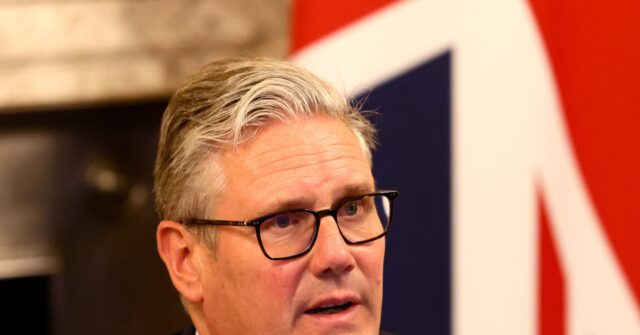The knives appear to be out in Westminster as questions swirl over the shelf life of Sir Kier Starmer’s government and whether anything can be done to reverse its doom loop trajectory and fend off an early election.
Downing Street was put on the defensive on Saturday morning in the wake of the departure of scandal-ridden Deputy PM Angela Rayner, the supposed working-class socialist Housing Minister who underpaid property taxes on her second, £800,000 home. Nevertheless, Rayner was one of the only relatively popular members of the government before her untimely downfall.
Her resignation forced a significant reshuffle of the cabinet, resulting in the anti-Trump perennial punchline David Lammy being shifted into the role of Deputy Prime Minister. Meanwhile, pro-Palestine activist and former Justice Secretary Shabana Mahmood became the first Muslim woman to head the Home Office, the department responsible for protecting the nation’s borders.
Mahmood is being pitched in legacy media as a “tough” operator, yet her pro-open borders voting record and her role in the mass release of criminals from prisons last year to clear space in the jail system have raised questions about whether she will be up to the necessary task of clamping down on migration.
Rearranging the deck chairs aside, the government is now facing questions over whether it will be forced to call for an early election after poll-leading Reform UK leader Nigel Farage predicted an election by 2027 and that the Labour Party would descend into a civil war over the fight to replace Rayner as deputy leader of the leftist party.
This forced an official denial from Number 10, with the Chief Secretary to the Prime Minister, Darren Jones, being quoted by The Times of London as saying: “Nigel Farage is wrong there. The Labour Party is not going to split and there won’t be an early election.”
While some have attempted to brand Starmer’s reshuffle as bold and decisive — two words not often associated with the technocratic Prime Minister — even senior figures within the Labour Party have been forced to admit that it demonstrates the perilous position the party is in.
Labour peer Lord Falconer, a former member of Tony Blair’s cabinet, said that the reshuffle showed a “profound understanding by the PM that things need to change and they need to change urgently.”
“You cannot avoid the proposition that we have not connected appropriately with the public,” Lord Falconer said in comments reported by the Mail, adding that, “if we haven’t got a sense of direction that connects quite quickly, then we are in problems I think.”
However, it is unclear what, if any, options remain on the table for Starmer, with any meaningful deportation campaign likely being off the table given the handcuffs that are his pro-open borders base and his unwillingness to withdraw Britain from the globalist European Convention on Human Rights (ECHR) and its deportation-blocking court in France.
Additionally, the Chancellor of the Exchequer, Rachel Reeves, who was one of the few cabinet members to retain their post on Friday, appears determined to raise taxes again in her fall budget, a move that will likely result in further economic pessimism among the heavily taxed and financially struggling public.
A lack of political direction for Prime Minister Starmer’s government was cited by top British pollster Sir John Curtice, who branded it on Saturday as a “gaping hole” at the heart of Downing Street.
The professor added: “The public have repeatedly said … that they don’t know what he stands for, and it’s the absence of a sense of direction, and therefore of leadership, that I think is one of the fundamental political reasons, at least, that the popularity of this government has fallen below any other newly elected government.”
Follow Kurt Zindulka on X: Follow @KurtZindulka or e-mail to: kzindulka@breitbart.com
Read the full article here


